By Daniel Mason-D’Croz (IFPRI) and Shahnila Islam (IFPRI)
In collaboration with the Philippine National Economic Development Agency (NEDA), the GFSF initiative of the International Food Policy Research Institute (IFPRI) directed a 5 day short-course on scenario analysis and economic modeling with IFPRI’s International Model for Policy Analysis of Agricultural Commodities and Trade (IMPACT, https://www.ifpri.org/program/impact-model). This short-course, held 25-29 January 2016 in Angeles City, Philippines, was a part of ongoing, nationally-focused work in the Philippines that has already resulted in a forthcoming book and several joint NEDA-IFPRI policy notes (Policy Note 1 and Policy Note 2). NEDA invited 30+ regional staff to attend with the objective to familiarize them with the joint research program and build regional capacity in the methodologies used to complete this joint work.
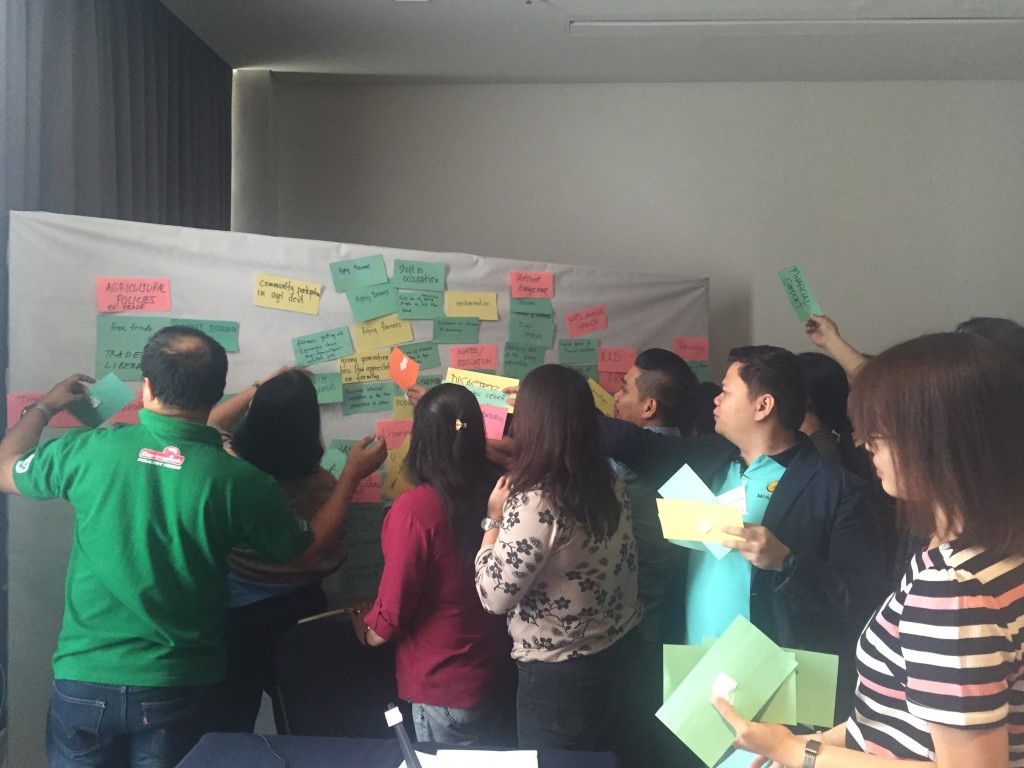
Figure 1- Participants clustering factors of change while developing scenarios in the Philippines (picture by Shahnila Islam)
Shahnila Islam and Daniel Mason-D’Croz presented IFPRI’s IMPACT Model and a participatory scenario development methodology developed as a part of the CCAFS regional scenario project (see the CCAFS Synthesis Report). Nicostrato Perez also presented findings from the joint work on the Philippines that connected the IMPACT model with a national-level CGE model which providing valuable quantitative foresight projections used to inform policy at the national level. Keith Wiebe presented global results and analysis from IMPACT’s most recent baseline studies, showing the scope from which IMPACT can help inform agricultural policy from the national to global scales.
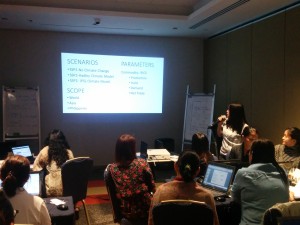 |
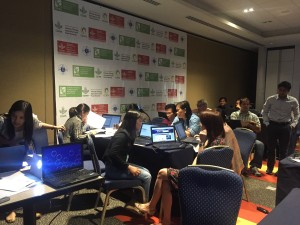 |
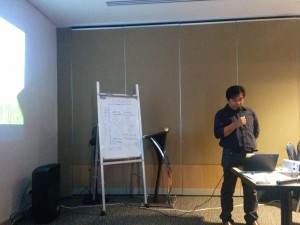 |
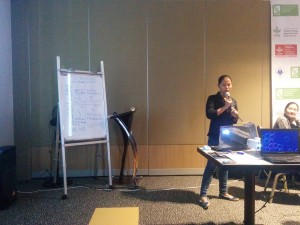 |
Figure 2- Workshop participants preparing and presenting IMPACT scenario results
This workshop was designed to be a mix of theory and practical interactive elements where participants were introduced to the entire analytical process involving IMPACT. Participants stepped through the entire scenario process used in GFSF, from developing scenario narratives to scenario quantification and simulation, and ultimately analyzing and presenting scenario results. Participants had opportunities to run the model and generate their own scenario results and, through exchanges with the IFPRI training team, learn how to interpret results and ultimately gain a better understanding of how IMPACT works. This short-course introduced the participants to the GFSF scenario process and will be the basis of future potential collaboration and knowledge exchange between NEDA and IFPRI.





